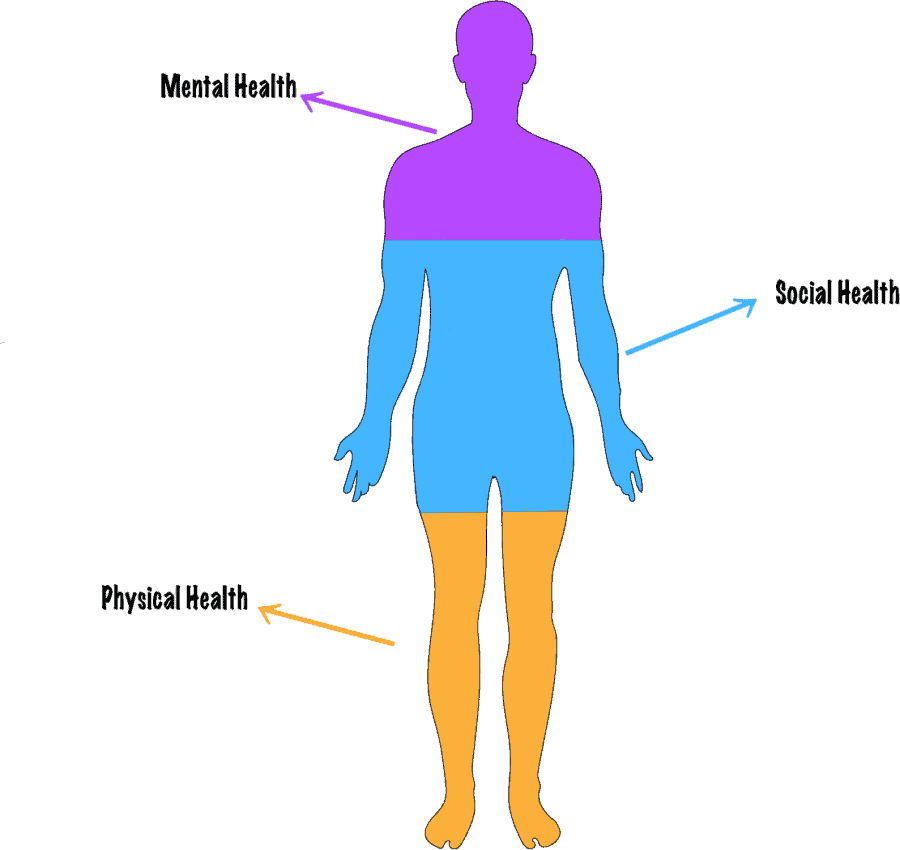The art of balance: Maintaining physical, social and mental health in college
August 4, 2021
This story was featured in Horizons, a special edition of The Crimson White for freshmen and transfer students. Horizons can be found on newsstands across campus, or online here.
In high school, many students dream of the independence and freedom that college provides, but many students struggle to navigate the complex world of higher education with their newfound liberty.
Between juggling academic work, internships, clubs and the social life that comes with college, students often feel overwhelmed and put their health priorities aside. To excel in school and in other parts of life, several UA experts said it’s important for students to balance their mental, physical and social health.
Mental Health
College is often considered the time of your life, but many students struggle with mental health issues, particularly those stemming from academic, financial or career-related problems.
In an online study conducted by the Jed Foundation in 2020, 82% of students experienced anxiety, 63% said they felt depressed at some point in the school year and 60% experienced difficulty coping with stress.
Greg Vander Wal, the executive director of the UA Counseling Center, said it’s common for college students to struggle with mental health issues at some point.
“College is a time full of change, and changes can be stressful,” Vander Wal said. “It’s a time where you’re consistently having to learn new things. It’s stressful trying to find a way to balance everything that works for you. So when you’re dealing with a lot of stress and a lot of change, that can create a ripe environment for distress.”
Vander Wal said the most common mental health-related issues that the Counseling Center sees are stress management problems, anxiety, depression and mood-related issues. In college, time management is difficult, from schoolwork to money and friendship troubles.
“So often in college, the first thing that we let go of is ourselves,” Vander Wal said. “We’re so busy, and there [are] so many demands for our time, we feel like we don’t have time for [self-care].”
Vander Wal said the best ways to practice self-care for mental health aren’t what some might think. While it’s crucial to sleep well and eat healthily, unwinding after a long day, relying heavily on your social supports and trying to find a balance in your everyday life are just as important.
Many stressors can affect a student’s mental health in a college environment; from midterms to finding a job after graduation, the best way to manage stress, Vander Wal said, is to be aware.
“It’s very important to understand what your triggers are for stress, what your signs are that you are feeling stress, and you need to have a good plan in place,” he said. “So often we get overly stressed because we don’t really notice that the stress is getting to us until it gets to a point where it’s highly distressing.”
Another great option for students to manage their mental health is to go to the Counseling Center, whether you want to vent to someone once or need regular meetings with a counselor. Vander Wal said there is no problem too big or too small to schedule a meeting.
“If it’s something that’s bothering you, if it’s something that’s affecting your ability to be a successful student and a successful human being in your life, then that’s a big thing,” he said.
Physical Health
In the absence of PE classes and parents reminding students to eat fruits and vegetables, it’s no doubt that college students struggle to maintain their physical health. From balancing a healthy diet to managing disordered eating habits, it’s important for students to learn the facts about their health and wellbeing.
Sheena Gregg, a registered dietitian in the department of health promotion and wellness, entered the nutrition field after struggling with disordered eating. Gregg said that, because college can be stressful and academically challenging, many students put their physical health aside to maintain their grades and social life.
“We come into college, and academics are our first priority, or they’re taught to be our first priority, so we put a lot of self-care behaviors on the back burner, whether that’s exercise, nutrition or getting enough sleep,” Gregg said. “That’s probably one of the biggest contributors to college students really struggling with this balance, and because there is such pressure to make sure that they are performing at their best academically, we end up sacrificing a lot of the self-care things that we need to be doing.”
While college students often prioritize academics over health, Gregg said it’s common for students’ grades and social lives to be affected by poor physical health practices. Nutritious food enables students to maintain success in other areas.
On top of the normal demands students face during their college years, Gregg said it’s also a transitional time for many students. While in high school, they may have relied on their parents to shop for groceries or cook meals, but during college many have to learn how to make independent food decisions for the first time.
With this newfound independence, Gregg encourages students to be intentional with their eating and physical activity. She said students should give nutrition the same attention as everything else in their lives.
“When we think about meals and snacks, be intentional about planning,” Gregg said. “Think about when you are going to eat breakfast or when you will eat lunch. Have backup snacks in your backpack if you have a class that overlaps into a mealtime, so you don’t go so long without eating. I know a lot of us like to use calendars, journals and planners, so if we can plan our meals and snacks the same way we would plan going to class or any other obligation, that can really set us up for success.”
Gregg said the relationships and habits students have with nutrition and physical activity in college often define their adult lives, so it’s important to work on physical health in college.
“In order to maintain a healthy relationship with food, we really just have to go back to the basics and remember that food exists for both nourishment and pleasure,” Gregg said. “A lot of times, our disordered eating thoughts or unhealthy relationships with food result from thinking that food is either just for pleasure or just for nourishment, but it really just boils down to moderation and balance.”
The University offers resources to educate students and teach them to prioritize their physical health. The Department of Health Promotion and Wellness provides services, from debunking myths about common “fad diets” to going on grocery store runs and teaching students how to read nutrition labels.
Social Health
Social health can negatively or positively affect mental and physical health. A college environment emphasizes social life. From parties to dating and meeting new friends, it’s easy for students to become overwhelmed.
Karly Downs, an assistant professor in the department of human development and family studies, said the key to maintaining a healthy social life is balance.
“A healthy social life is going to vary depending on the individual,” Downs said. “Some people are more introverted. Some people are more extroverted. Some people need more social [connections] to maintain their energy level, and some people need less. It’s really about knowing yourself, knowing what you need, and then trying to balance that around you.”
Where social lives are involved, so are heartbreaks and breakups. According to a study conducted by Facebook Data Science, about 28% of college romantic relationships last beyond graduation.
“When it comes to both friendships and romantic relationships, you have to be willing to see what part you play in the relationship,” Downs said. “If there’s conflict, you have to look and not just focus on what the other person is doing wrong or how the other person needs to change, but you need to focus on you.”
There’s a term for a theoretical model called a collaborative set, which means that both partners are willing to take ownership of their role in the relationship’s dysfunction, and they’re willing to make change.
Downs said students must understand their boundaries to maintain healthy relationships. After recognizing their patterns and social goals, students can then set boundaries on their relationships that will make them feel comfortable and in control.
“Boundaries are really hard,” Downs said. “Boundaries are the rules that you set for yourself about how you’re going to interact with people and when you’re going to interact with them.”
Boundaries come in different forms. Students might have to cut off someone who doesn’t make them feel their best, or refuse to hang out with someone because they need to study. Some friends can take boundaries personally, so Downs said it’s important to turn to healthy communication to get your intentions across.
“If you’re having a problem with your roommate, go back to some basic communication skills,” Downs said. “Don’t come at somebody attacking because they’re going to want to attack you back, or they’re going to be defensive. Come at people with a calm tone because roommates always have issues. There’s always a problem, whether it’s with cleaning or your boyfriend is over and they’re annoyed. Just come at people in a way that is open and honest.”
Downs said “staying true to yourself” is one of the best ways to meet friends and mentors, but it can take time to meet them. College has a reputation for being the place where people meet lifelong friends, but Downs said it’s important to let go of the pressure of social life.
It’s normal to feel lonely in college, she said, especially after moving away from family and friends at home. Students can still try to meet friends and mentors without putting pressure on themselves for it to work out.
“Take advantage of all the opportunities that the college campus has, even if that’s going to require you to step out of your comfort zone,” Downs said. “Nobody grows in their comfort zone. The only time growth happens in people is when you take that chance and take that risk and step outside of it.”











